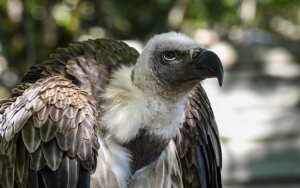
Towards the end of the 20th Century, vulture populations across South Asia plummeted, with few species loosing up to 99% of their population. The loss of vulture populations across the subcontinent has led to an ecological collapse and a public health crisis. As very powerful scavengers, vultures play a critical role in the consumption of carcasses of not only dead wildlife, but also of livestock. Following the vulture crisis, there was insufficient and inefficient removal of carcasses, providing havens for lesser scavengers, such as smaller rodents and feral dogs. In fact, the vulture crisis has been credited for the explosion of feral dog populations around India.
Unlike vultures, which have corrosive digestive fluids to destroy these pathogens, these lesser scavengers become carriers of countless zoonotic diseases. It is no surprise that the 35 million feral dogs have become the primary transmitters of rabbis to communities around India. Moreover, these feral dogs also are destroying wildlife, by attacking prey species, transmitting diseases, such as canine distemper virus and competing with local predators, such as wolves and dholes.
In this episode, I speak to Chris Bowden from the Royal Society of the Protection of Birds about the causes of the vulture crises and the broader ecological impact. We also talk about various conservation initiatives in India to tackle the vulture crisis, ranging from creating vulture safe zones and vulture conservation breeding programs around India.
You can listen to the original episode on Substack!
Podcast: Play in new window | Download
